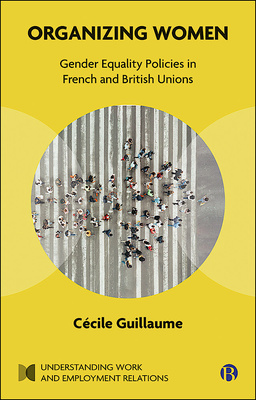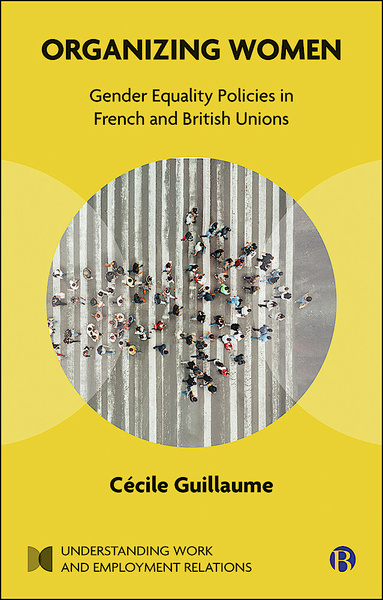Published
Dec 16, 2021Page count
212 pagesBrowse the series
Understanding Work and Employment RelationsISBN
978-1529213690Dimensions
234 x 156 mmImprint
Bristol University PressPublished
Dec 16, 2021Page count
212 pagesBrowse the series
Understanding Work and Employment RelationsISBN
978-1529213713Imprint
Bristol University PressPublished
Dec 16, 2021Page count
212 pagesBrowse the series
Understanding Work and Employment RelationsISBN
978-1529213713Imprint
Bristol University PressIn the media
'Women in union leadership—not seeing the wood for the trees?' in Social Europe
This book explores the representation of women and their interests in the world of work across four trade unions in France and the UK.
Drawing on case studies of the careers of 100 activists and a longitudinal study of the trade unions' struggle for equal pay in the UK, it unveils the social, organizational, and political conditions that contribute to the reproduction of gender inequalities or, on the contrary, allow the promotion of equality.
Guillaume’s nuanced evaluation is a call to redefine the role of trade unions in the delivering of gender equality, contributing to broader debates on the effectiveness of equality policies and the enforcement of equality legislation.
"This is a highly readable and engaging book. Guillaume advances the union equality debate through the life stories of research participants, addressing the interconnected issues of descriptive representation of women in unions and their substantive representation in the workplace." Gill Kirton, Queen Mary University of London
"Organizing Women is essential reading for those seeking insight into women and unions in Britain and France. It is highly readable, authoritative, and offers new and original comparative research." Geraldine Healy, Queen Mary University of London
Cécile Guillaume is Reader in Employment Relations at Surrey Business School. She has written widely on gender equality in the trade union context and led numerous research projects investigating how trade unions have mobilized legal or non legal repertoires of action to advance gender equality in the workplace.
1 Introduction
2 Unions’ Representation Of Women and Their Interests In the Workplace
3 The Gendered Making Of Union Careers
4 Legal Mobilizations By Unions to Defend Equal Pay In Great Britain
5 Conclusion: Lessons for Future (Comparative) Research
















